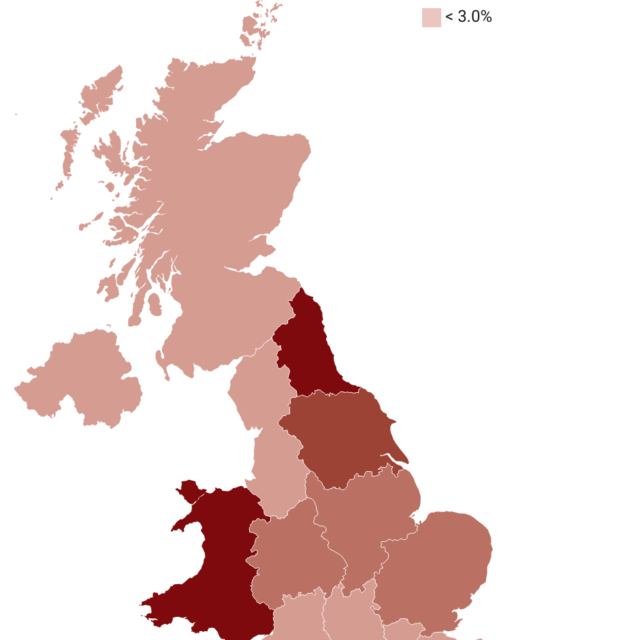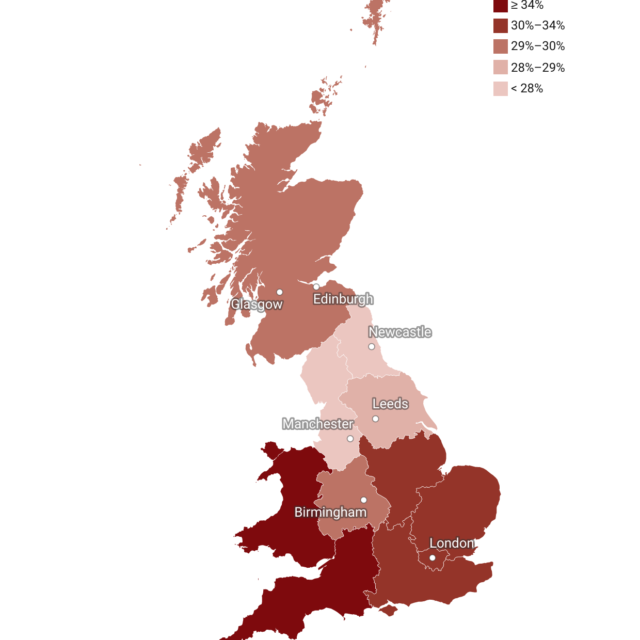- Home
- Publications
- Implications Of The Transition From Defined Benefit To Defined Contribution Pensions In The UK
Implications of the Transition from Defined Benefit to Defined Contribution Pensions in the UK
 Pub. Date
Pub. Date
 Pub. Type
Pub. Type

External Authors

Francisco Sebastian
Related Themes
Destitution, Exclusion, and Strategies for Well-BeingTags
Journal
National Institute UK Economic Outlook, No. 13, Vol. Series A
Publisher
NIESR, London
Issue
Winter 2024
This box discusses the ongoing shift in the UK funded occupational pension landscape from Defined Benefit (DB) to Defined Contribution (DC) schemes, which carries significant implications for financial markets and the broader UK macroeconomic environment. Within the cyclical horizon, this transition is anticipated to result in a decline in real pension savings and a redirection of capital away from domestic use. The financial repercussions extend to funding pressures on the UK central government and to corporate sectors involved with infrastructure, such as utilities and housing. Additionally, it makes long-term interest rates more volatile and fosters a procyclical relationship with sterling. The key macroeconomic repercussion is an erosion of resources and willingness to invest domestically, from both private and public sources.
Recent policy attempts to induce domestic investment from private pension funds are well intentioned. The bigger opportunity for the UK Government to nurture investment lays with occupational pensions in the public sector.
Related Blog Posts

Child Language Brokering: What It Is and How It Is Experienced By Migrant Families
Domiziana Turcatti
Ekaterina Aleynikova
Adrian Pabst
29 Jan 2024
7 min read

What are the Experiences of Latin American Migrants Accessing Healthcare?
Jasmin Rostron
Ekaterina Aleynikova
16 Oct 2023
5 min read

A Review of UK Asylum Policy for Refugee Week 2023
Ekaterina Aleynikova
Adrian Pabst
19 Jun 2023
4 min read

Are Price Controls on Food a Viable Option?
Arnab Bhattacharjee
Adrian Pabst
12 Jun 2023
6 min read
Related Projects
Related News

1.2 million UK Households Insolvent This Year as a Direct Result of Higher Mortgage Repayments
22 Jun 2023
2 min read


Thousands Of Households Projected To Face Monthly Mortgage Repayments Greater Than Their Monthly Incomes
03 Nov 2022
2 min read

Related Publications

The Nature of the Inflationary Surprise in Europe and the USA
21 Mar 2024
Discussion Papers

Supporting Immigration Advice Amidst Financial Challenges: Local Authorities’ Funding Initiatives
29 Feb 2024
Topical Briefing

Job Boom or Job Bust? The Effect of the Pandemic on Actual and Measured Job and Employment Growth
07 Feb 2024
UK Economic Outlook Box Analysis

Related events

Taxing Consumption

2021 Anglo German Foundation Lecture: Professor Jutta Allmendinger





